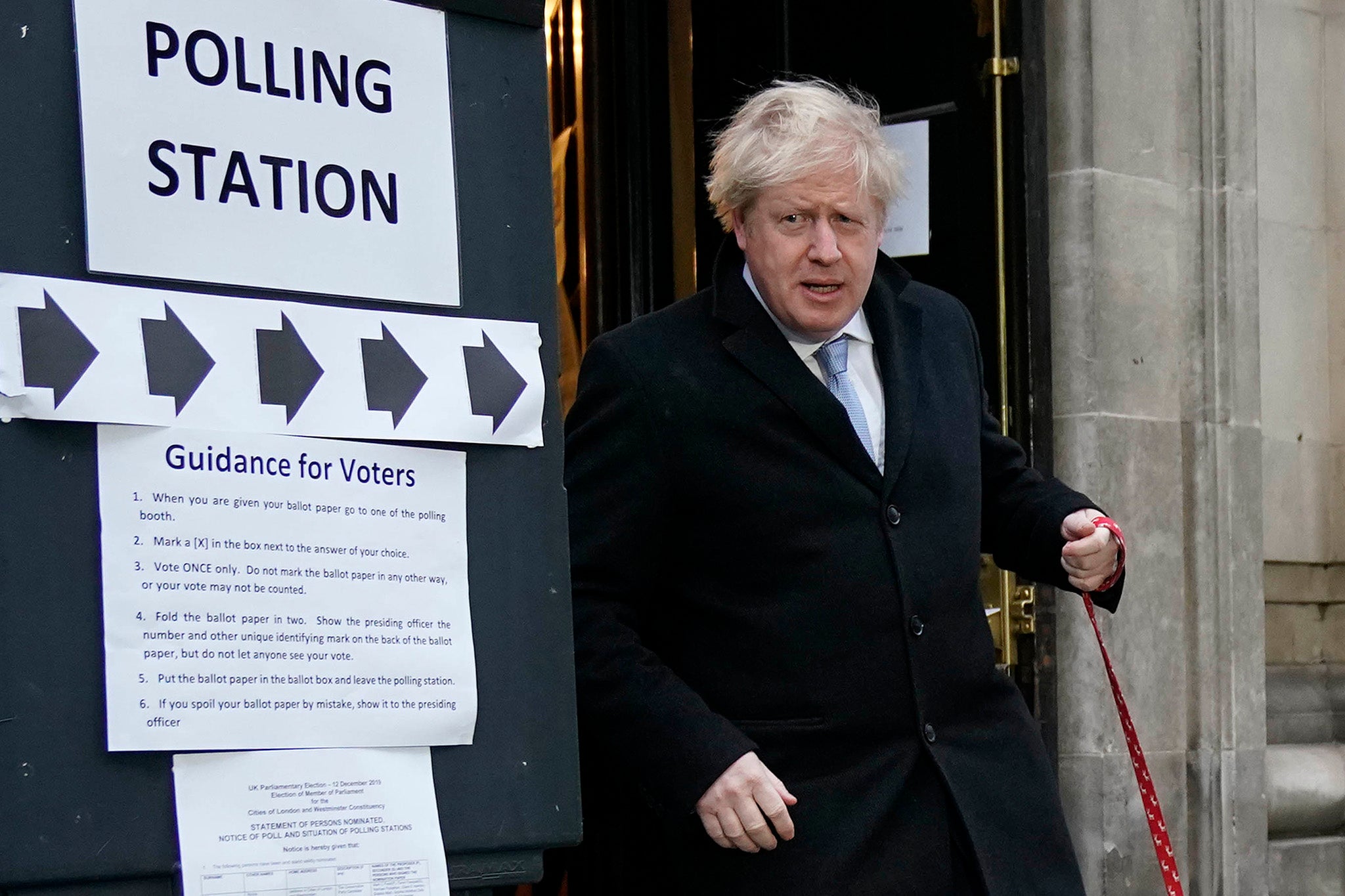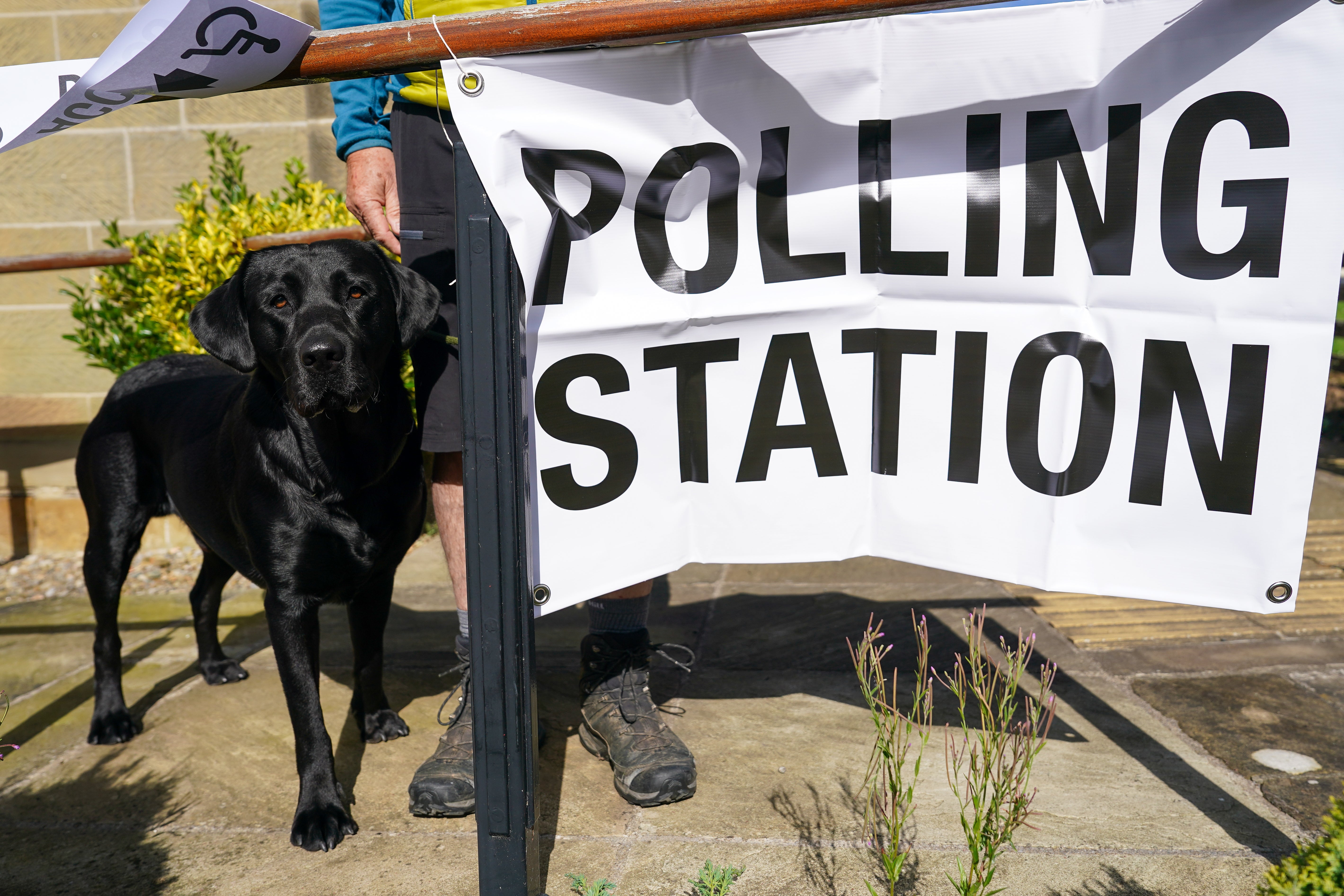Voter ID rules ‘discouraged thousands from voting’, Electoral Commission finds
Polling suggested around 4% of people who did not vote in the election said their decision was related to the voter ID

Your support helps us to tell the story
From reproductive rights to climate change to Big Tech, The Independent is on the ground when the story is developing. Whether it's investigating the financials of Elon Musk's pro-Trump PAC or producing our latest documentary, 'The A Word', which shines a light on the American women fighting for reproductive rights, we know how important it is to parse out the facts from the messaging.
At such a critical moment in US history, we need reporters on the ground. Your donation allows us to keep sending journalists to speak to both sides of the story.
The Independent is trusted by Americans across the entire political spectrum. And unlike many other quality news outlets, we choose not to lock Americans out of our reporting and analysis with paywalls. We believe quality journalism should be available to everyone, paid for by those who can afford it.
Your support makes all the difference.Around 16,000 people could not vote in the general election because of the photo ID requirements, a watchdog has found. Others were put off from going to the polling station entirely, it added.
The Electoral Commission said the vast majority of voters were able to cast their ballots in July’s contest despite the need to show ID.
But 0.08% of people who tried to vote in Great Britain were unable to do so, the watchdog said.
Photo ID rules were brought in by Boris Johnson’s government as part of the Elections Act 2022, as the then-government said they were necessary to combat the risk of in-person voter fraud.
Mr Johnson was himself turned away from a polling station at the May 2024 local elections after forgetting to take a photo ID.
The commission’s analysis, compiling polling station data and public opinion research, found 0.25% of people were initially turned away, but two-thirds returned later with the necessary documentation.
Polling for the commission also suggested that around 4% of people who did not vote in the election said their decision was related to the voter ID requirement.
The evidence suggests that people from poorer backgrounds who did not vote were more likely to say it was because they did not have any accepted ID, the commission said.
Electoral Commission chief executive Vijay Rangarajan said: “This was the first time all voters across the UK were required to show photographic ID at a general election, and the data shows almost everyone was able to do so successfully.
“However, our research shows that the need for ID discouraged some people from voting – and we don’t want to see any voters lose their say.
“Public awareness of the need for voter ID is high across the UK, but there are still groups of voters that are less likely to be aware of the need to show ID or that do not have an accepted form.
“Everyone eligible should have the opportunity to vote, which is why we are recommending changes that will support those who do not currently have ID and improve the accessibility of elections, while maintaining the security of the process.
“The commission will review how our public campaigns and other work can continue to support the effective implementation of voter ID and minimise the barriers to voting.”

Labour’s election manifesto committed to “address the inconsistencies in voter ID rules that prevent legitimate voters from voting”.
The commission called for the Government to review the list of accepted ID to identify any additional documents that could be added, such as the Jobcentre Plus Travel Discount Card and the 18+ Student Oyster photocard, in addition to the Veteran Card.
The watchdog called for a review of the voter authority certificate and consideration of whether it could be issued digitally to encourage greater take-up.
And the commission also suggested registered voters with ID should be able to make an attestation to vouch for someone at a polling station without a suitable document.
Separate figures compiled by the PA news agency, using data obtained from local authorities, shows how the margin of victory in some seats at the election was close to the number of people unable to vote.
In the constituency of Poole, which Labour’s Neil Duncan-Jordan won by just 18 votes, 14 voters were recorded as not returning to polling stations after being turned away for not having the correct photo ID.
Some 14 potential voters did not return to polling stations in Basildon & Billericay, where Conservative Richard Holden won by only 20 votes.
In Cambridgeshire North West, where Labour’s Sam Carling won by 39 votes, six potential voters did not return after being turned away, while in Devon Central – won by Mel Stride for the Conservatives by 61 votes – 16 did not come back.
Some of the data recorded at polling stations is likely to be incomplete or inaccurate, meaning the reported figures underestimate the impact of the photo ID requirements, the Electoral Commission said.
As such, it is possible the outcome in Poole and other narrowly-won seats may have been different had the rules not been in place.
There are also examples of constituencies reporting more than 100 potential voters not returning to cast a ballot, while others said every voter returned, pointing to inconsistency in how some of the figures were recorded.
The commission’s analysis of the impact on July’s general election was based on data collected by polling station staff and a YouGov poll of 5,863 adults between July 4 and 26.
Join our commenting forum
Join thought-provoking conversations, follow other Independent readers and see their replies
Comments